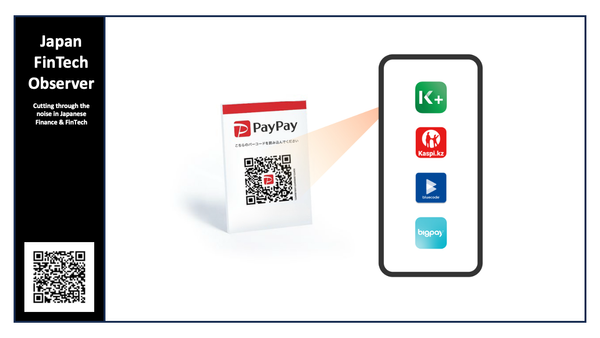Report of the Working Group on Payment Services

The Financial System Council's Working Group on Payment Services has published its key findings and recommendations today. The report addresses emerging issues in the Japanese FinTech landscape, focusing on payment and settlement services, crypto-assets, stablecoins, and other related topics. It proposes several regulatory adjustments to balance innovation with consumer protection, particularly concerning the failure of financial service providers and the flow of funds across borders.
The report acknowledges the rapid integration of FinTech into daily life, citing the widespread adoption of cashless payment systems as a prime example. This technological evolution necessitates regulatory adaptation to maintain a level playing field, protect users, and foster healthy innovation. The Working Group was formed in response to a mandate from the Minister of Finance to examine the proper scope of regulations in light of these changes. The report aims to provide a framework for the Financial Services Agency (FSA) to consider in its future policy and regulatory decisions.
A. Payment and Settlement Services
Diversifying User Fund Return Methods for Funds Transfer Businesses
- Current Issue: Current regulations require funds transfer businesses to fully protect user funds via deposit, guarantees, or trust. However, even with these methods, user fund returns during bankruptcy take a minimum of 170 days due to the mandatory deposit process.
- Proposed Change: The report proposes a new system that allows direct returns to users during a fund transfer business's bankruptcy, bypassing the lengthy deposit procedures. This system would draw inspiration from the practice of direct returns via segregated client trust in the financial instruments trading industry.
- Specific Methods: Proposed methods for direct returns include (1) guarantees from a guarantee institution (through either debt assumption or individual guarantee) or (2) direct returns by a trust company through a beneficiary agent.
- Implementation Notes: The method is to be optional for businesses, and is to be complemented with requirements to ensure user awareness of the methods used by the transfer business.
Easing of Restrictions on Retained Funds for Type 1 Funds Transfer Businesses
- Current Issue: Type 1 funds transfer businesses (those handling transfers over 1 million yen) are restricted in how long they can hold user funds and require specific transfer instructions, limiting service flexibility.
- Proposed Change: The report recommends allowing a limited retention period (up to two months) under certain conditions, relaxing requirements for specific transfer dates, and enabling transfers between Type 1 and Type 2 accounts.
- Conditions for Extended Retention: Businesses would need to implement measures for early and highly reliable fund returns (e.g., direct return mechanisms and more conservative asset management).
Regulation of Cross-Border Collection Agency Services
- Current Issue: Cross-border collection agency services, where funds are collected on behalf of a foreign entity, are increasingly being used in cases of illegal activity, such as overseas online casinos and investment scams. There is a risk of money laundering and terrorism financing when these services are used as a substitute for regular international remittances.
- Proposed Change: Apply the existing laws and regulations covering money transfer services to cross-border collection agencies, while taking into consideration the principle of "same activity, same risks".
- Exceptions: There would be a continued focus on the risk inherent in each type of service, potentially exempting agencies involved in the underlying transaction (e.g., platform providers and consignment sellers).
Use of Prepaid Payment Instruments for Donations
- Current Issue: Currently, the use of prepaid payment instruments for donations is highly restricted due to concerns over money laundering and regulatory circumvention.
- Proposed Change: The report recommends allowing the use of prepaid payment instruments for donations to national and local governments and recognized legal entities, with limits on donation amounts and the use of non-anonymous instruments (number-based cards would be excluded).
- Policy Goal: To promote a culture of donation by providing a wider range of options.
B. Crypto Assets and Electronic Payment Instruments (Stablecoins)
Preventing the Outflow of Assets Held by Crypto Asset Exchange Businesses during Failure
- Current Issue: The report highlights the case of FTX Japan where assets were only protected due to it being registered as a financial instrument business, which allowed for an asset freeze. Current regulations lack the power to order domestic asset holding for crypto-asset exchange businesses regulated under the Funds Settlement Act.
- Proposed Change: The report recommends a legal mechanism for the FSA to mandate domestic asset holding for crypto-asset exchange businesses during a business failure or similar crisis to protect user assets.
Regulatory Framework Based on the Realities of the Crypto Asset Business
- Current Issue: Businesses that introduce users to crypto-asset exchanges, even without handling user funds, are currently classified as intermediaries and subject to all regulatory compliance obligations. This is considered an unreasonable burden.
- Proposed Change: The report suggests creating a new category of intermediary business, akin to "Financial Instruments Brokerage Business" with simplified rules and obligations. This would specifically apply to businesses that introduce users to exchanges without managing their assets. This would include a mandatory affiliation with a registered exchange.
Flexible Management/Investment of Funds Backing Specific Trust Beneficiary Rights (Type 3 Electronic Payment Instruments)
- Current Issue: Current regulations mandate that funds backing Specific Trust Beneficiary Rights (a type of stablecoin) be managed solely in demand deposits at banks.
- Proposed Change: The report recommends allowing the inclusion of low-risk assets like Japanese and US government bonds within a specific asset allocation threshold for greater flexibility in the management and investment of funds used to back stablecoins. A key goal is to ensure that the value of the underlying assets remains consistent with the pegged value of the stablecoin.
Application of Travel Rules to Specific Trust Beneficiary Rights (Type 3 Electronic Payment Instruments)
- Current Issue: Currently, the movement of Type 3 payment instruments is exempt from "Travel Rules," but this exemption does not apply to all transactions as issuers may not be able to easily track the ownership of the instrument.
- Proposed Change: The report recommends the implementation of travel rules when there is a transfer of Type 3 Electronic Payment Instruments.
Issuance of Type 1 Electronic Payment Instruments by Deposit-Taking Financial Institutions
- Current Issue: Issuance of electronic payment instruments by deposit-taking financial institutions (DFI) is under consideration, but the current bank laws are structured in a way that assumes that DFIs only hold demand-based liabilities in the form of deposits.
- Proposed Change: The issuance of Type 1 electronic payment instruments by DFIs is not recommended for the time being.
C. Other Points of Discussion
"Payment on Behalf" Services and Loan Eligibility
The report highlights that determining whether a “payment on behalf” service (立替サービス) should be classified as a loan is not straightforward. The determination should be made on the basis of the economic nature of the service.
Foreign Financial Institutions' Participation in Syndicated Loans:
The report indicates that current registration rules for foreign financial institutions participating in syndicated loan structures in Japan may need to be loosened, however there needs to be further exploration of what measures need to be taken to ensure these loans pose no undue risk to the Japanese financial system.
CONCLUSION
The report serves as a comprehensive analysis of the evolving FinTech landscape in Japan and presents recommendations for regulatory adjustments. It emphasizes a need to balance user protection and innovation, particularly concerning the failure of service providers, cross-border transactions, and new forms of digital assets. The Working Group acknowledges that these topics require continuous monitoring and further discussion, and encourages a collaborative approach among government agencies and other stakeholders to address these complex challenges.
NEXT STEPS
- The FSA will need to review this report and consider how these recommendations should be implemented.
- There needs to be further discussion within the FSA and with stakeholders to discuss how to best implement the proposals in this report.
Please follow us to read more about Finance & FinTech in Japan, like hundreds of readers do every day. We invite you to also register for our short weekly digest, the “Japan FinTech Observer”, on LinkedIn, or directly here on the platform.
We also provide a daily short-form Japan FinTech Observer news podcast, available via its Podcast Page. Our global Finance & FinTech Podcast, “eXponential Finance” is available through its own LinkedIn newsletter, or via its Podcast Page.
Should you live in Tokyo, or just pass through, please also join our meetup. In any case, our YouTube channel and LinkedIn page are there for you as well.




